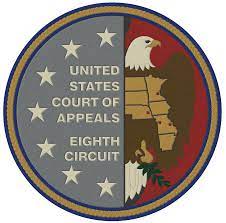![]()

In a split decision, the 8th U.S. Circuit Court of Appeals has lifted a lower court injunction prohibiting Nebraska from enforcing a state constitutional requirement that initiative petition drives have signatures of at least 5% of registered voters in 38 counties to qualify for the ballot.
The ACLU of Nebraska had challenged the requirement on behalf of Nebraskans for Medical Marijuana, which was gathering signatures for 2 initiatives to legalize medical marijuana.
They argued that the 38-county requirement gave too much power to less populated counties, diminishing the power of individual voters in heavily populated counties and violating the equal protection clause of the Constitution.
U-S District Judge John Gerrard ruled in June that the challenge was likely to succeed, based on prior U-S Supreme Court decisions, and granted an injunction to prevent enforcement of the requirement while the overall case was proceeding.
The 3-member appeals court panel disagreed, with 2 of the judges saying it was already “established precedent” in the 8th Circuit that the right to place initiatives on the ballot isn’t guaranteed in the U-S Constitution, but is a matter of state law.
Because of that, Judges Raymond Gruender and David Stras ruled the states have the power to determine how many signatures are needed and where the signatures should be gathered.
Judge Jane Kelly disagreed, saying in her dissent that past precedence wasn’t quite that “clear cut” and that the right to vote on ballot initiatives was an “integral part” of the election process.
Kelly wrote that “If the right to vote is fundamental, I see no reason why it should not apply equally to the initiative process at the heart of Nebraska’s electoral and legislative system.”
ACLU attorney Jane Seu calls the ruling “troubling” because “the ability to petition our government for change is foundational to our democracy.”
As for taking the issue to the U-S Supreme Court, Seu says attorneys “will be taking time to carefully read through the decision and discuss our options,” adding that “We are not giving up.”
